With the continuous research on the application mode of energy storage and the performance of various batteries, it is generally believed that lithium batteries are most suitable for the application in the field of energy storage, and the development of lithium batteries in the field of energy storage will become better and better. Whether from the national policy level or market prospects, lithium batteries are more popular. For example, lithium iron phosphate batteries have been used in various fields such as large energy storage power plants, communication base stations, electric vehicles.
Communication industry base stations are huge in number and widely distributed, the requirements for the selected backup energy storage batteries are increasingly high, the most important thing is the safety and stability, energy-saving and environmental protection. Energy storage lithium batteries have been used in the field of communications for a relatively long time, and the technology chain has certain development progress, while the development potential of energy storage lithium batteries in the field of communications is huge.
Intelligent energy storage lithium battery can effectively protect the base station battery in the event of the accidental short circuit, lightning shock, and other conditions, timely start the protection system to provide a safe and stable backup power supply for the entire base station. The system can work frequently in the field and in special environments with harsh working conditions. In terms of energy saving, just in the communication base station, a base station can save 7200 kWh/year, the power saving is not to be underestimated. In terms of environmental protection, lithium batteries do not have heavy metals and have very little impact on the environment.
Compared with lead-acid batteries, lithium batteries have low internal resistance loss during discharge, low heat generation, compact installation space (about 1/3 of the same capacity of lead-acid), lightweight (about 1/4 of the same capacity of lead-acid), and the production, assembly and use of lithium batteries are pollution-free throughout the process, environmentally friendly, and are the main force in the energy-saving and emission reduction market.
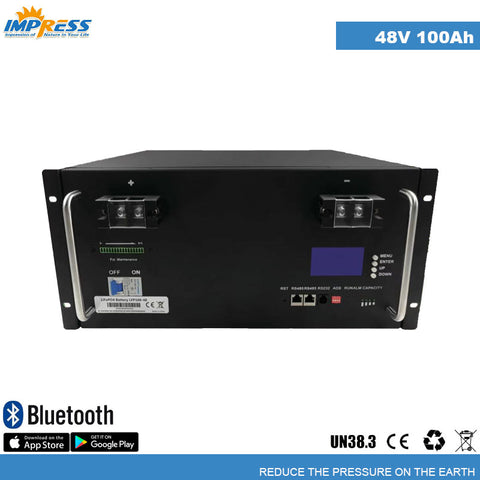
The containerized energy storage system is composed of an energy storage converter, lithium iron phosphate battery storage unit, battery management system, and pre-assembled container. It has many advantages such as a small footprint, convenient installation and transportation, short construction period, strong environmental adaptability, and high intelligence.
The successful grid-connected operation of container energy storage systems is a further expansion and deepening in the field of new energy, energy storage, and microgrid. With the characteristics of fast on-site arrangement and high production standardization, containerized lithium battery storage structure will be widely used.
Lithium container-type energy storage system at the same time with rain, fog, dust, sand, lightning, anti-theft effect, etc., to meet a variety of use environment. Containerized large lithium storage system solutions for enterprises to bring benefits, to provide a stable income for investors, more national power stable development to provide active support.
The significance of communication and power container energy storage in the market layout
Communication energy storage is the foreground of lithium battery application and is also the verification. The total amount of container energy storage is very large, is strong support for the energy Internet and smart grid and the future power reform, but also the foundation. Electric vehicles or power battery is the direction of national vigorous support, and energy storage whether it is new energy storage and communication storage in the future is the most favorable profit support for the power battery system, the power system of secondary use cost dilution by these two forms of energy storage, to power battery with favorable support.
Communication base station outdoor environment is harsh, affected by temperature and humidity, especially as the special properties of the base station power supply, the performance of the energy storage lithium battery plays a vital role in the stability of the network signal, related to the user experience, so operators of the battery consistency, stability requirements are also higher.
The number of antenna channels and site capacity of 5G devices is significantly increased, leading to an overall increase in power consumption of base stations, and the 5G base station power supply and power backup need to be upgraded and expanded. In the energy storage system, it is a trend to replace lead-acid with lithium batteries of smaller size, lighter weight, higher energy density, longer life, and better performance.
A container energy storage system is a green energy-saving, efficient, and stable energy management system. Container energy storage system has simplified infrastructure construction costs, short construction cycle, a high degree of modularity, easy to transport and installation, etc. It can be applied to thermal, wind, solar, and other power plants or islands, small communities, schools, research institutions, factories, large load centers, and other applications.
The power container energy storage system has a full range of self-diagnostic functions, real-time detection of voltage, temperature, communication, clock, memory, internal communication, and other components after power-up, as well as judgment and alarm for battery faults such as over-voltage, under-voltage, over-current, over-temperature, SOC too low/high and consistency, to ensure safe and stable operation of the energy storage system.


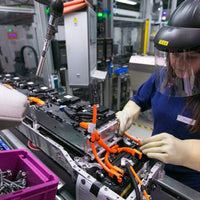
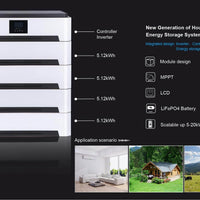
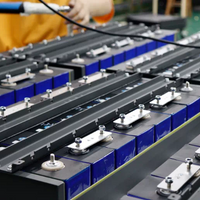
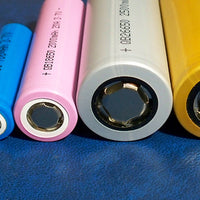
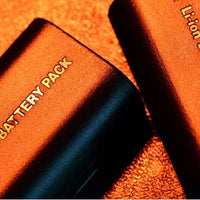
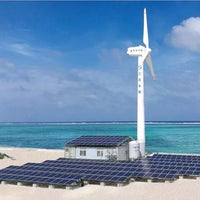
0 comments